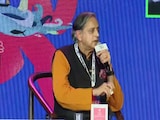- Denmark plans to grant copyright protections over body, face, and voice features
- The proposal aims to amend Danish copyright law to combat AI-generated deepfakes
- Citizens could request removal of non-consensual deepfake content from platforms
In an attempt to clamp down on AI-generated deepfakes, Denmark is planning to pass legislation granting citizens copyright protections over their own body, facial features and voice. Denmark's department of culture has already secured cross-party support for the move and is preparing to submit a proposal to amend the current Danish copyright law.
The move comes at a time when AI has made it easier than ever for anyone to create a convincing deepfake image, video or sound to mimic the features of another person. In most instances, the deepfake is created to settle grudges and to cause harm towards the victim.
Jakob Engel-Schmidt, Danish culture minister, said he hoped the bill would send an "unequivocal message" that everybody had the right to the way they looked and sounded.
"In the bill we agree and are sending an unequivocal message that everybody has the right to their own body, their own voice and their own facial features, which is apparently not how the current law is protecting people against generative AI," he told The Guardian.
"Human beings can be run through the digital copy machine and be misused for all sorts of purposes and I'm not willing to accept that."
The changes to the law, if approved, would theoretically allow Danish citizens to ask online platforms to remove such content if it is shared without consent. The government said the new rules would not affect parodies and satire, which would still be permitted.
Also Read | Controversy Erupts As Scientists Start Work To Create Artificial Human DNA
NZ MP shows nude deepfake
To show the growing perils of AI deepfakes, New Zealand MP Laura McClure last month showed a manipulated, naked image of herself on the floor of the parliament. The image, which Ms McClure revealed had taken less than five minutes to create online, was censored for broadcast purposes but served as a powerful illustration of the potential dangers posed by deepfakes.
"Today in Parliament, I showed an AI-generated nude deepfake of myself to show how real - and easy - these are to create. The problem isn't the tech itself, but how it's being misused to abuse people. Our laws need to catch up," Ms McClure wrote on Instagram.
Ms McClure said she wants to amend current legislation that makes it illegal to share nude photographs without consent to include deepfakes.















